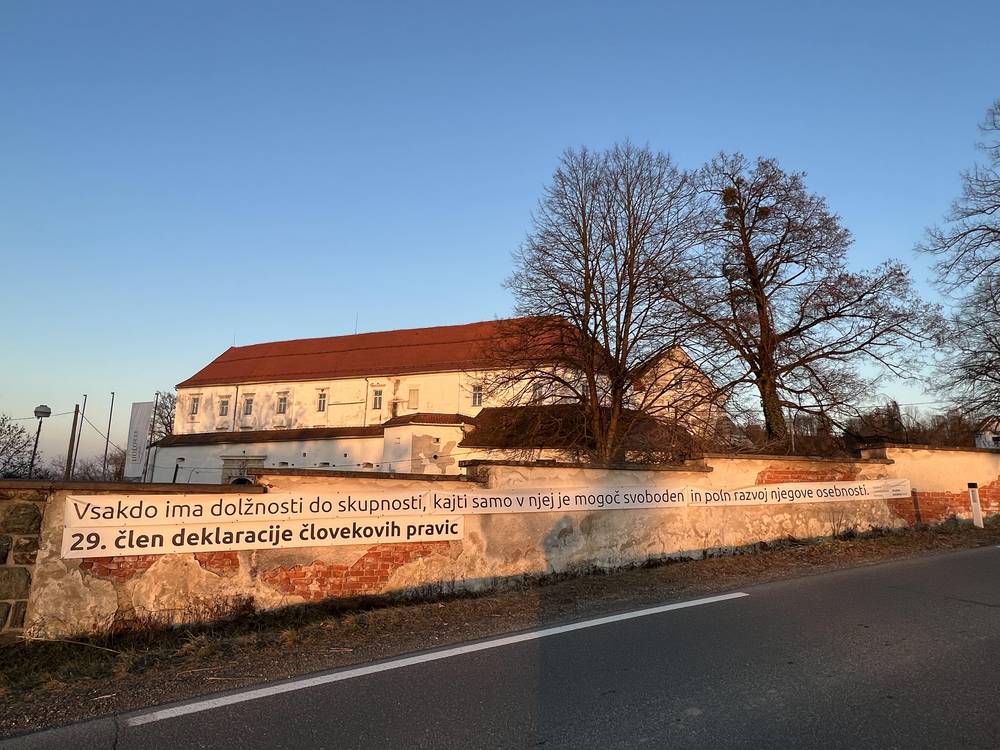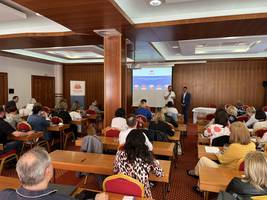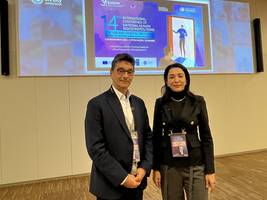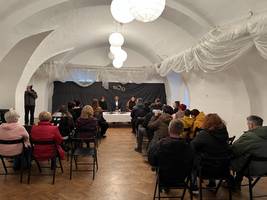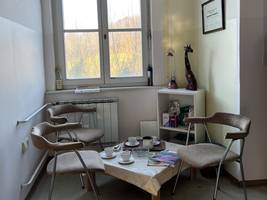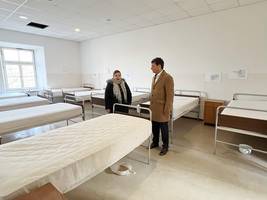The Human Rights Ombudsman Peter Svetina visited the Museum of Madness, which has been operating since 2013 in the Cmurek Castle in Trate in Zgornja Velka. Prior to that period, between 1954 and 2004, one of the units of the Hrastovec Social Care Institution was located there and housed people with mental health disorders. The Ombudsman visited the museum and, in a conversation with its management, emphasised the importance of preserving the voice of those living in institutions and raising awareness of the issue of restrictions on the right to free movement or deprivation of liberty due to mental health disorder or illness. As discovered by the institution of the Ombudsman, we unfortunately still encounter some bad practices in institutions in Slovenia, for example cases of admission and treatment without consent in wards under special supervision of psychiatric hospitals, and cases of disagreement with housing in protected wards of social care institutions as well as cases of poor living conditions, which is why raising awareness and education about the issue is extremely important. Upon Svetina’s visit, the Ombudsman, as an honourable speaker, attended the award ceremony, where authors of awarded diploma, master, and doctoral papers received awards by the Museum of Madness.
At the award ceremony of the Museum of Madness, Svetina said that “respecting human rights and fundamental freedoms is a basic humanistic commitment to notice and respect fellow human beings in all their integrity and to take action if their rights are violated. So, in order to be able to realise this commitment at all, it is essential that we learn about, analyse, and familiarise ourselves with the issue of human rights. Learning about human rights issues and raising awareness about them is only the first step towards an inclusive society.”
From his own long-term experience and observations of the institution he leads, he pointed out the key 'weaknesses' in the field of deinstitutionalisation, such as the Long-Term Care Act, the adoption of which has been taking too long and that residents have been waiting for almost 20 years for the adoption of this act, on which high hopes are placed, “but it also serves as a convenient excuse to not deal with matters”, emphasised Ombudsman Svetina.
Another pressing issue are waiting times and occupancy in long-term care facilities, which is a result of the country's current poor attitude towards these issues, and also the lack of alternatives. “I myself do not see the solution only in increasing the capacity of institutions, but in 'real' deinstitutionalisation. The Ombudsman emphasises that an accessible, efficient, and financially sustainable system of long-term care based on social justice and intergenerational solidarity should have been established a long time ago. “It is unacceptable that many live in various institutions, even though they could live with dignity in their home environment,” believes the Ombudsman.
He pointed out existing staff norms for medical and nursing staff in institutions for long-term care as the fourth weakness. These are insufficient in view of the increasing need for care and assistance and the more demanding medical care required by service users and residents in nursing homes. “The staff is leaving, but problems remain, and not only that – they keep accumulating, unfortunately, as they are ineffectively addressed,” emphasised the Ombudsman.
The Ombudsman is convinced that rapid and effective reforms of the system are essential, and a single goal should be at the heart of them: individual support that promotes full integration into the community. Ombudsman Svetina emphasises that “as individuals, the community, and the country, we should ask ourselves repeatedly what kind of society we want in the future and what kind of human rights stories we want to present to new generations. My sincere wish is that we could present the society to them as something where dignity of every individual is respected.”
"The awards of the Museum of Madness and the competition of the institution of the Ombudsman for diploma, master, and doctoral theses in the field of human rights and other similar competitions encourage educational institutions and students or doctoral students to research human rights and fundamental freedoms. Centuries of struggles and efforts for them can be nullified in an instant, so with each new generation it is necessary to rethink values brought by the knowledge of human rights and cement them into the thinking system of society, so that regression does not occur, but healthy progress," Human Rights Ombudsman Peter Svetina also emphasised and listened to the findings on the connections between institutions that deal with long-term care and human rights violations that they investigated.
